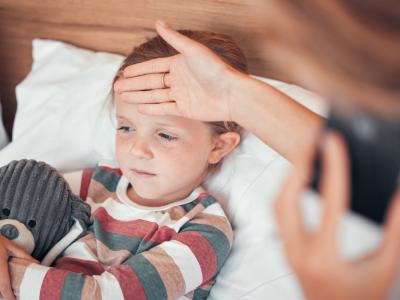Jul 6, 2007 (CIDRAP News) – Only 27% of Americans describe themselves as concerned about avian influenza, down from 35% last year, according to a national survey released this week.
In an Associated Press–Ipsos Public Affairs poll released on Jul 2, 41% of respondents said they were not concerned about avian flu, an increase from 31% last year. Another 34%—the same as last year—said they were moderately concerned.
Only 15% of respondents said they were concerned that they or someone in their household would get sick, as compared with 24% last year, according to the survey. The survey questions used the terms "bird flu" and "avian flu," but not "pandemic flu."
In a press release on the survey, Ipsos said the apparent drop in Americans' concern over avian flu coincides with reports from the World Health Organization (WHO) that the number of human H5N1 flu cases appears to have stabilized over the past year. Through mid June, the WHO had confirmed 50 human cases in 2007, compared with 115 for all of 2006, Ipsos said.
Recall of news coverage about avian flu has also declined, the survey indicated. The number of Americans who say they have read, heard, or seen at least some coverage of bird flu is 56%, down from 74% in 2006.
Most respondents (62%) thought US government leaders were giving enough attention to avian flu, up from 45% 2006. Only 32% thought the government should be directing more attention to the problem, down from 42% last year.
One number that seems to have changed little is the share of Americans who say news about avian flu is influencing their eating habits: about 9 in 10 respondents reported there has been no change in their consumption of chicken, turkey, or eggs.
The poll results come on the heels of an international flu conference at which animal-health experts expressed worries about declining public interest in avian flu. Speakers at the conference in Toronto said a shift in public perception could hamper the funding needed to control the disease in birds. They noted that H5N1 continues to evade detection and control efforts in many places.
The apparent decline in concern about avian flu also comes at a time when the US Department of Health and Human Services (HHS) is ramping up efforts to urge Americans to prepare for a pandemic. HHS recently sponsored a summit and blog series for pandemic planning leaders and announced that it would soon provide preparedness tool kits for various groups and conduct personal preparedness communication campaigns in 5 to 10 diverse communities.
The survey interviews were conducted from Jun 7 through 17. The poll, which included 1,438 adults (aged 18 and over), had a margin of sampling error of plus or minus 3.1 percentage points.
See also:
AP-Ipsos poll results
http://www.ipsos-na.com/news/pressrelease.cfm?id=3553
Jun 21 CIDRAP News story "Animal-health experts fear loss of interest in avian flu"
Jun 14 CIDRAP News story "HHS hears community leaders' ideas on pandemic readiness"


















